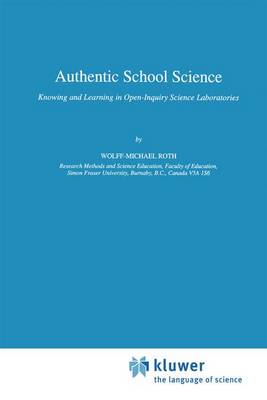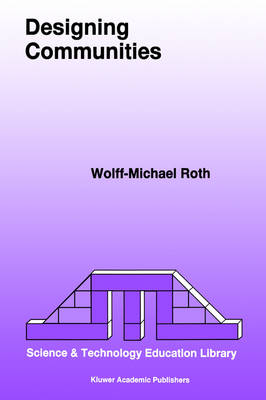Contemporary Trends and Issues in Science Education
2 primary works
Book 1
According to John Dewey, Seymour Papert, Donald Schon, and Allan Collins, school activities, to be authentic, need to share key features with those worlds about which they teach. This book documents learning and teaching in open-inquiry learning environments, designed with the precepts of these educational thinkers in mind. The book is thus a first-hand report of knowing and learning by individuals and groups in complex open-inquiry learning environments in science. As such, it contributes to the emerging literature in this field.
Secondly, it exemplifies research methods for studying such complex learning environments. The reader is thus encouraged not only to take the research findings as such, but to reflect on the process of arriving at these findings.
Finally, the book is also an example of knowledge constructed by a teacher-researcher, and thus a model for teacher-researcher activity.
Secondly, it exemplifies research methods for studying such complex learning environments. The reader is thus encouraged not only to take the research findings as such, but to reflect on the process of arriving at these findings.
Finally, the book is also an example of knowledge constructed by a teacher-researcher, and thus a model for teacher-researcher activity.
Book 3
The study described in this book arose in the contextof a three-year collective effort to bring about change in science teaching at Mountain Elementary School. 1 This opportunity emerged after I contacted the school with the idea to help teachers implement student-centered science teaching. At the same time, the teachers collectively had come to realize that their science teaching was not as exciting to children as it could be. They had recognized their own teaching as textbook-based with little use of the "hands-on" approaches prescribed by the provincial curriculum. At this point, the teachers and I decided that a joint project would serve our mutual goals: they wanted assistance in changing from textbook-based approaches to student-centered activities; I wanted to collect data on learning in student-centered knowledge producing classroom communities. I brought to this school my new understandings about classroom communi ties from several earlier studies conducted in a private high school (e. g. , Roth & Bowen, 1995; Roth & Roychoudhury, 1992). I wanted to help teachers create science learning environments in which children took charge of their learning, where children learned from more competent others by participating with them in ongoing activities, and teachers were responsible for setting up and maintaining a classroom community rather than for dissem inating information. After I had completed the data collection for the present study, I watched a documentary about an elementary school in the small French village of Moussac (Envoye Special, TV5, September 14, 1994).

